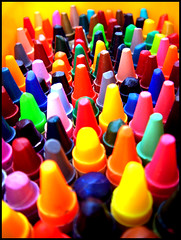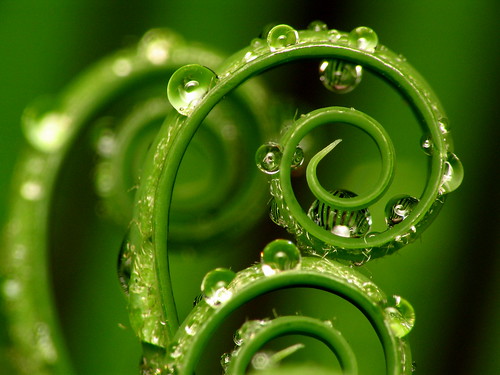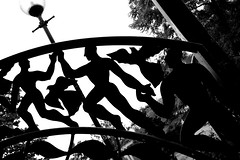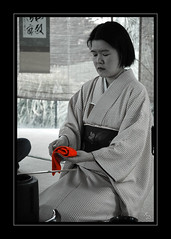Every day we do things, we are things that have to do with peace. If we are aware of our life, our way of looking at things, we will know how to make peace right in the moment, we are alive.
-- Thich Nhat Hanh
Peace
Life is like a box of crayons

Pull me out from inside.
Originally uploaded by mbrinamen.
The best way to look the people around you is to consider a box of crayons. Some are sharp, some are pretty, and some are worn and dull. Many have weird names, and all are different colors. But they all have to fit in the same box.
Habituation
The second half of a man's life is made up of nothing but the habits he has acquired during the first half.
-- Fyodor Dostoevsky
I've been listening to a series of talks by Pema Chodron. She talks a lot about Habituation, which is Ego based: We repeatedly do something, think something or repeat an action, and it gets stronger. We reinforce the action through repetition. Of course, the stronger the habit becomes, the more it controls us, and often the angrier we get.
One aspect of habituation also comes in to reinforce our opinions and prejudices. Strictly spoken, habituation is not negative; in fact it can be extremely positive. Note that the Tibetan word for meditation means "habituation." However, when negative emotions repeat, habituation can cause exponential growth of problems.
If we just look at the results of racial and religious discrimination and hatred, it is sadly obvious how extreme opinions can arise and create havoc, simply because they have become habitual. Once something is a habit, we do not question our behaviour anymore, it becomes automatic and extremely hard to change.
Zen and the Art of Tea
This photo utilizes the cutout technique to highlight color. In this case, the color focal point is the brilliant red fukusa which is a square of silk used for the tea ceremony, or chado. The fukusa is used for the ritual cleaning of the tea scoop (chashaku) and the tea caddy (natsume) before the start of making the tea and serving to the guests.
What Is Karma?

KARMA is often thought of as the law of cause and effect. The principle is similar to that expressed by the Christian verse, "As ye sow, so shall ye reap." The word karma means action, and it's used as short-hand for the idea that every action you take causes a reaction in the future. Positive, caring actions will bring positive results back to you, whereas negative, hurtful actions will result in your suffering.
Many people believe that both good and bad karma can return to you at any time, even after this lifetime. Hindus believe that the soul is immortal and is reborn in a new body after a person dies. Thus, you have an endless series of lives to work on your karma. In each life, you should strive to do good works and evolve spiritually so your next life will be better than this one. Hindus seek to eventually break free of the cycle of reincarnation and attain eternal bliss of the soul, called moksha.
A god does not administer the law of karma. There is no cosmic judge who doles out punishments and rewards, although some suggest that there is a "cosmic accountant" who tracks each person's karma. Ultimately, each individual is responsible for his or her own actions and karma.
Siddhartha Gautama, who became the Buddha and upon whose teachings all of Buddhism is based, was born into Hindu society and believed in the doctrine of karma. The Buddhist perspective on karma isn't very different than that of Hindus. Every action you take will have a repercussion in the future, and you have to live with the consequences of your actions. Most Buddhists believe in reincarnation, and their goal is to transcend constant birth and rebirth to achieve nirvana, similar to the Hindu moksha.
Buddhism also places importance on the intent of one's actions. For example, if you accidentally step on a bug and kill it, you won't create bad karma. But if you purposefully kill it, you create bad karma. Likewise, if your actions unintentionally benefit others, you do not create good karma. Only when you mindfully do good, do you create good karma.
Photo by jciv

